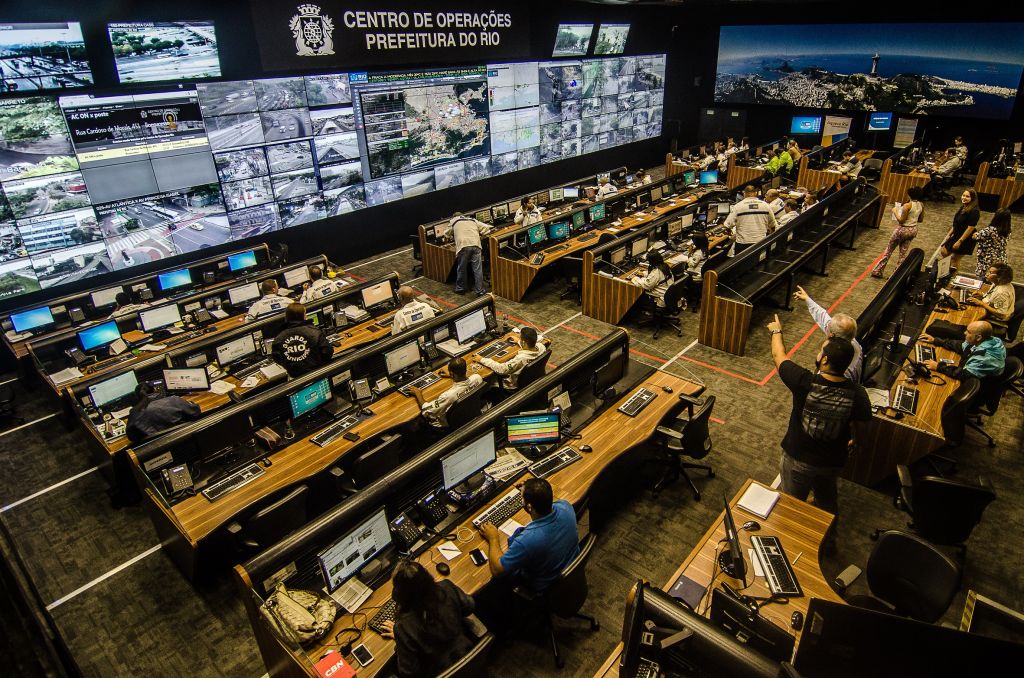6.1.1 Overview module 6
Course subject(s)
Module 6. Considering digital innovation
Smart cities and smart citizens often go hand in hand with new ICT-services. But what are the challenges. Let’s start with the picture below.
The next picture shows the famous Centro de Operações (control room) Rio de Janeiro.
Photo credits: George Soares.

If you see this control room, you will recognize many challenges:
- Who decides on -and prioritizes- the applications?
- How is the governance organized?
- How reliable and safe are the data? Who decides on the algorithms? Are they trustworthy? Is privacy guaranteed?
- What does the IT-architecture look like?
- What if you become totally dependent on the supplier (in this case, IBM) and lose control of your control room?
- Where do we find the resources to operate this center?
- What if the system fails?
Overview module 6
In this module, we will provide a framework to reflect on such questions and show you some applications (and ways to develop these. Our case studies focus on transport (congestion) using video and urban monitoring.
We recommend that you re-watch the web lecture on conceptual foundations of IT governance decisions in module 1.
Section 6.2: Framework for reflection
This section will discuss various lenses, challenges, and conditions for successful digital innovation from a management perspective.
- How to look at innovation (from incremental to whole new services) and who is in the lead. In this section, we will also discuss how to avoid vendor bias and lock-in.
- The complexity of and IT-architecture (and the many legacy problems)
- Then we will discuss how you go from data to wisdom and discuss the trustworthiness of data and algorithms. Cliffhanger: Bias is unavoidable and monitoring is key!
Section 6.3: Some Applications
This section is more practical.
- We will first discuss the potential of GIS and blockchain technologies.
- We will also demonstrate various approaches for coding jointly with stakeholders.
Section 6.4: Case studies
We will end this module by presenting two cases:
- Monitoring traffic in Chile;
- The urban monitoring system in Vicente López district, Argentina.
Our learning objectives for this module are:
- Assess digital innovation from a management and governance perspective.
- Demonstrate new digital instruments and tools for SSC.
Enjoy!

Smart and Sustainable Cities: New Ways of Digitalization & Governance by TU Delft OpenCourseWare is licensed under a Creative Commons Attribution-NonCommercial-ShareAlike 4.0 International License.
Based on a work at https://online-learning.tudelft.nl/courses/smart-and-sustainable-cities-new-ways-of-digitalization-and-governance/ /



